Measurement Worksheets for Ages 6-8 - Page 2
106 filtered results
-
From - To
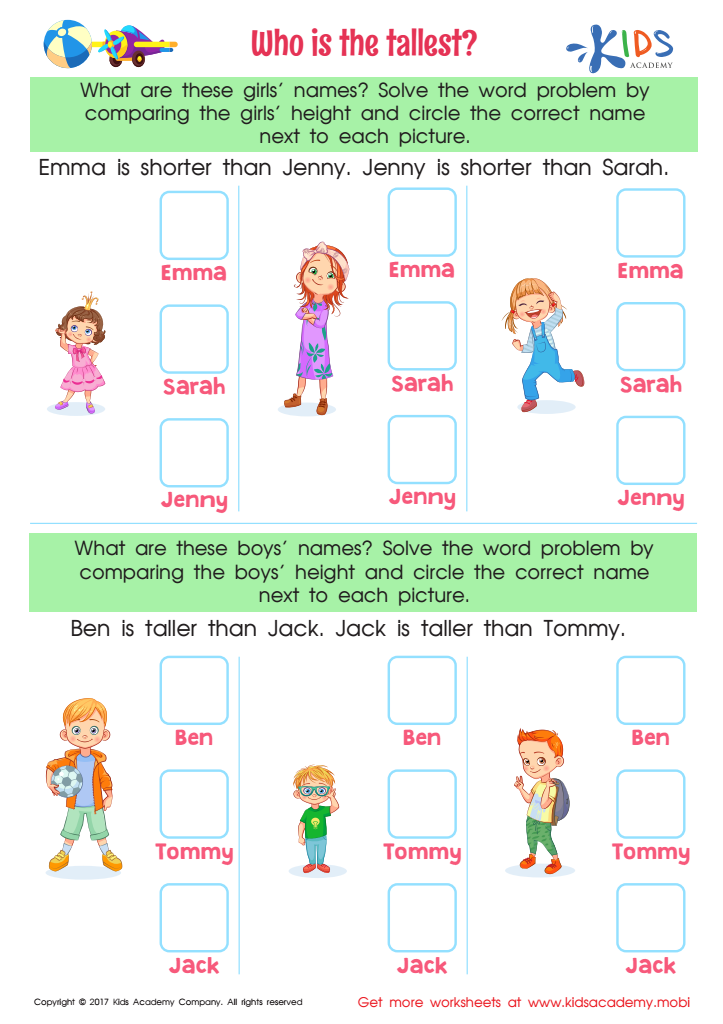

Who Tallest Printable
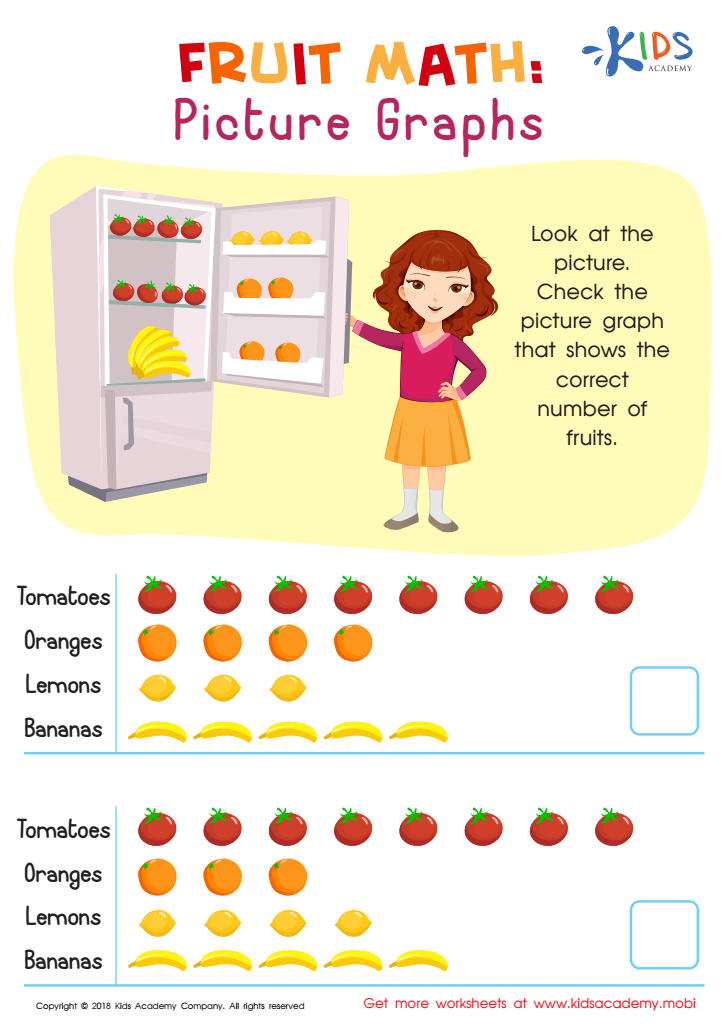

Fruit Math: Picture Graphs Worksheet
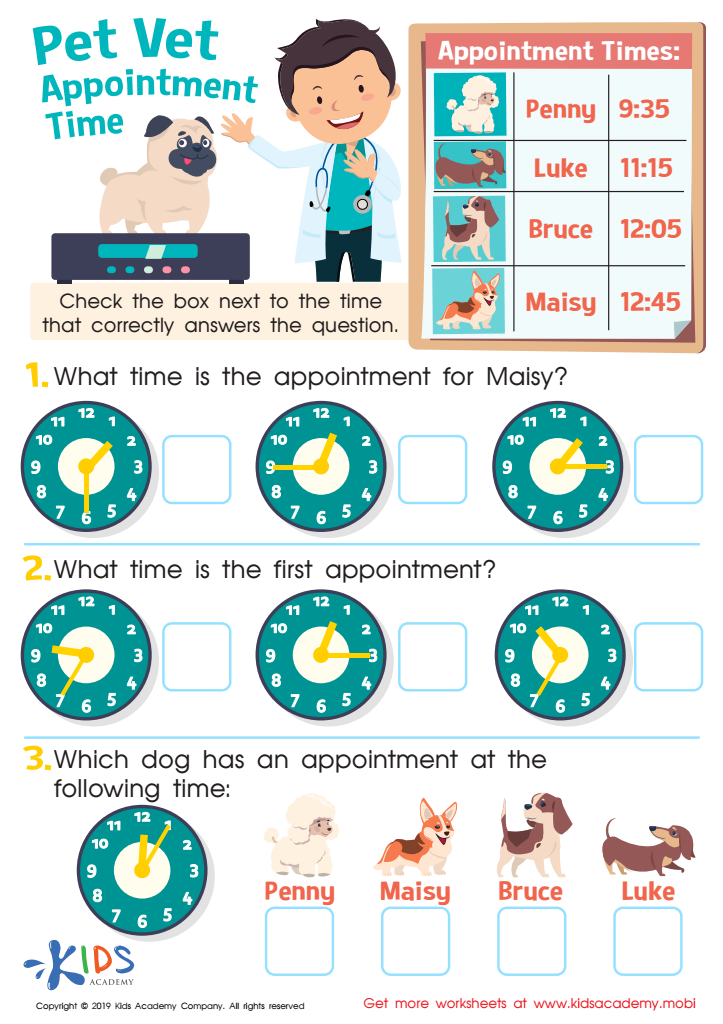

Pet Vet Appointment Time Worksheet
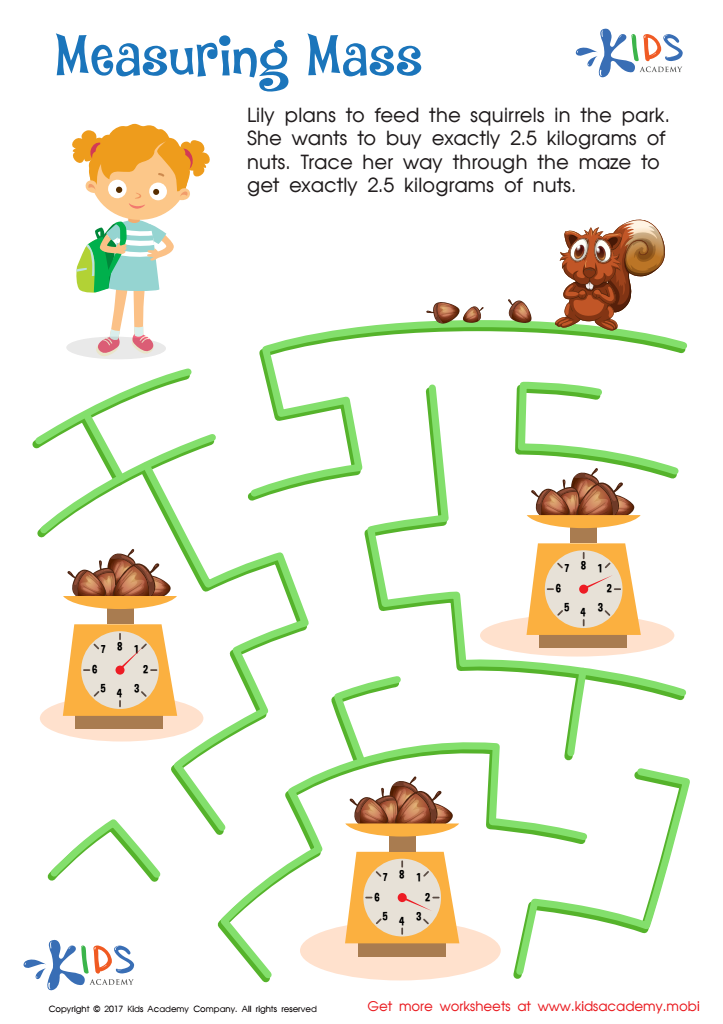

Measuring Mass Worksheet
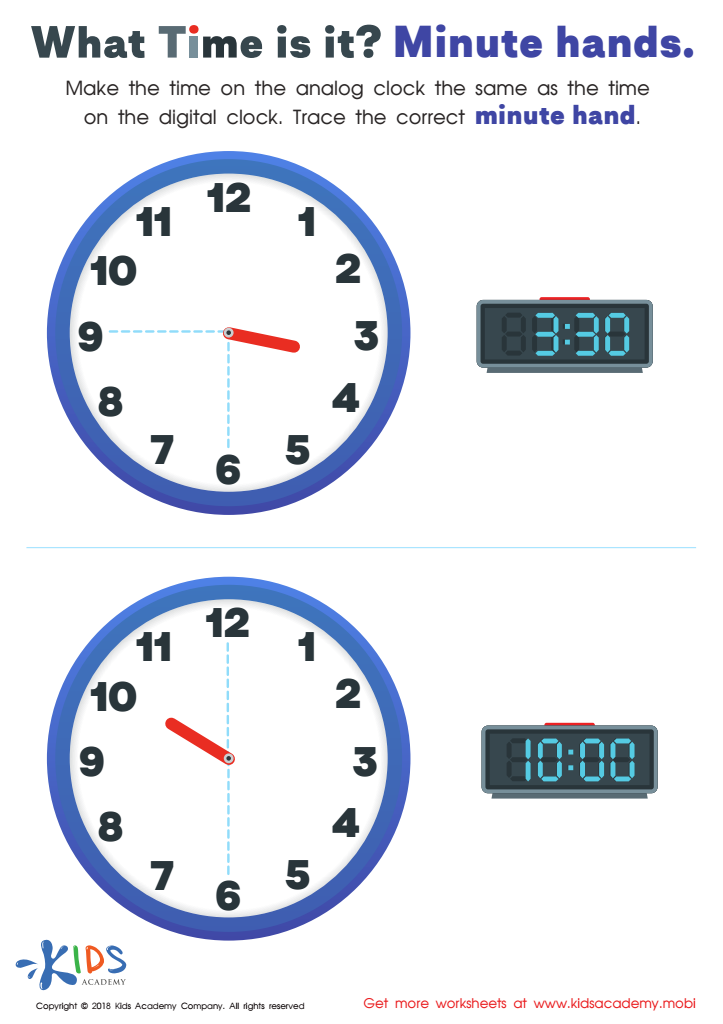

What Time Is it? Minute Hands Worksheet
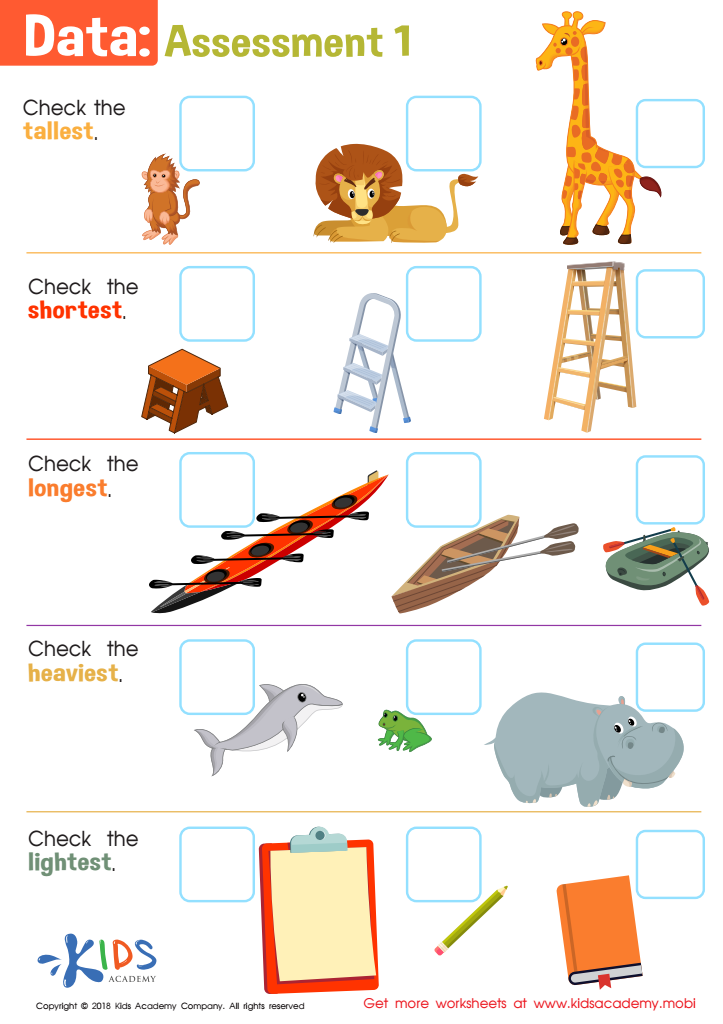

Data: Assessment 1 Worksheet
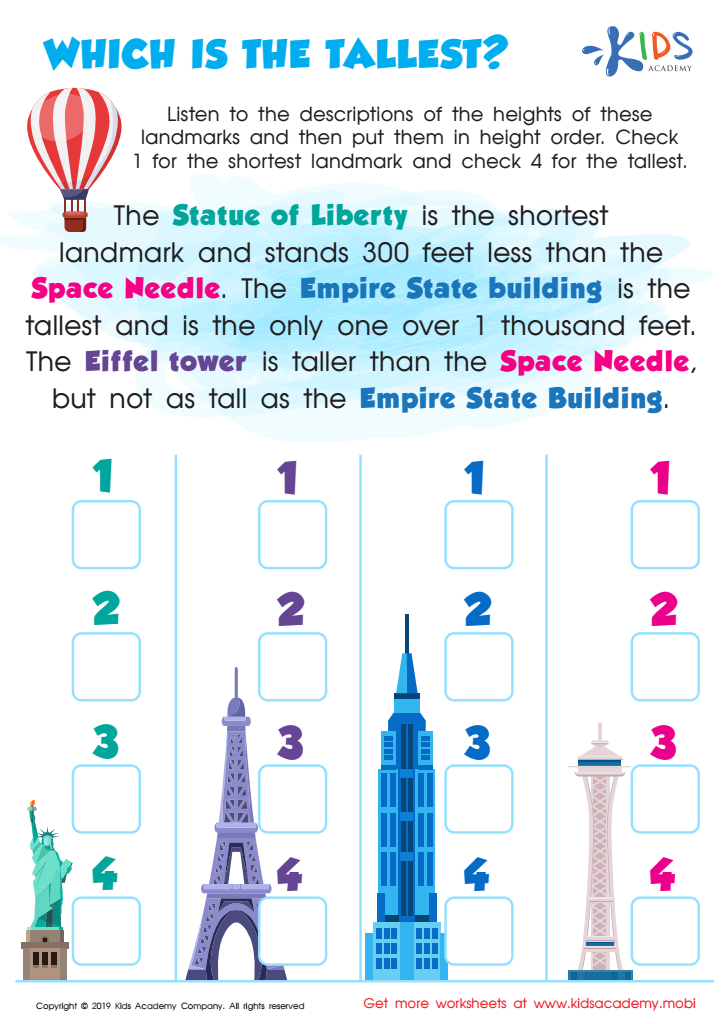

Which is the Tallest? Worksheet
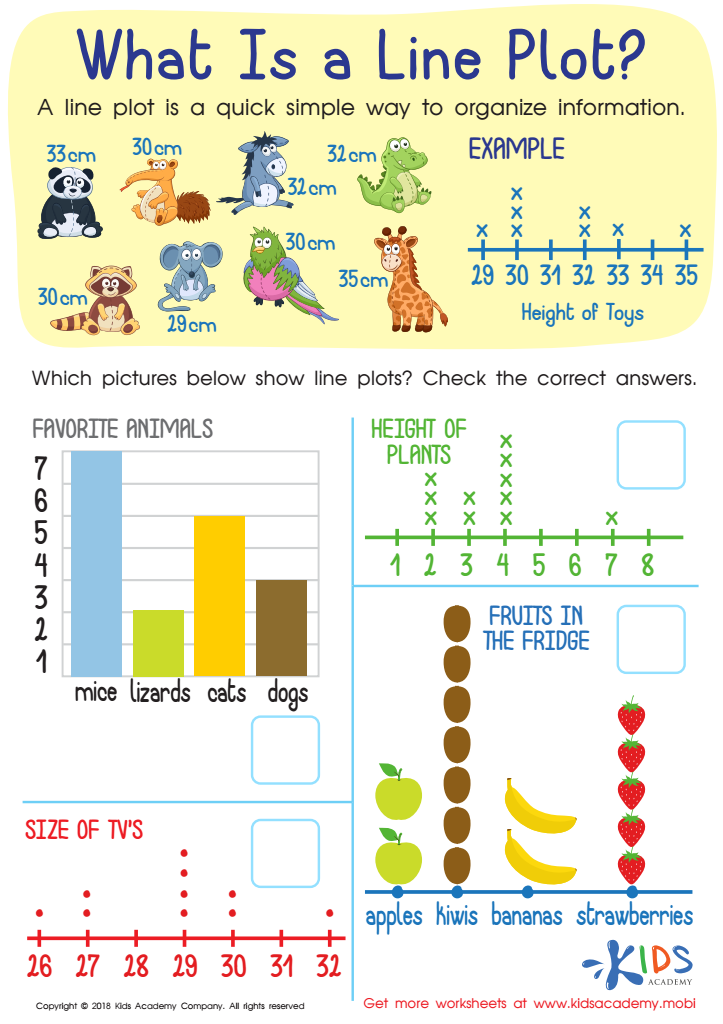

What Is a Line Plot? Worksheet
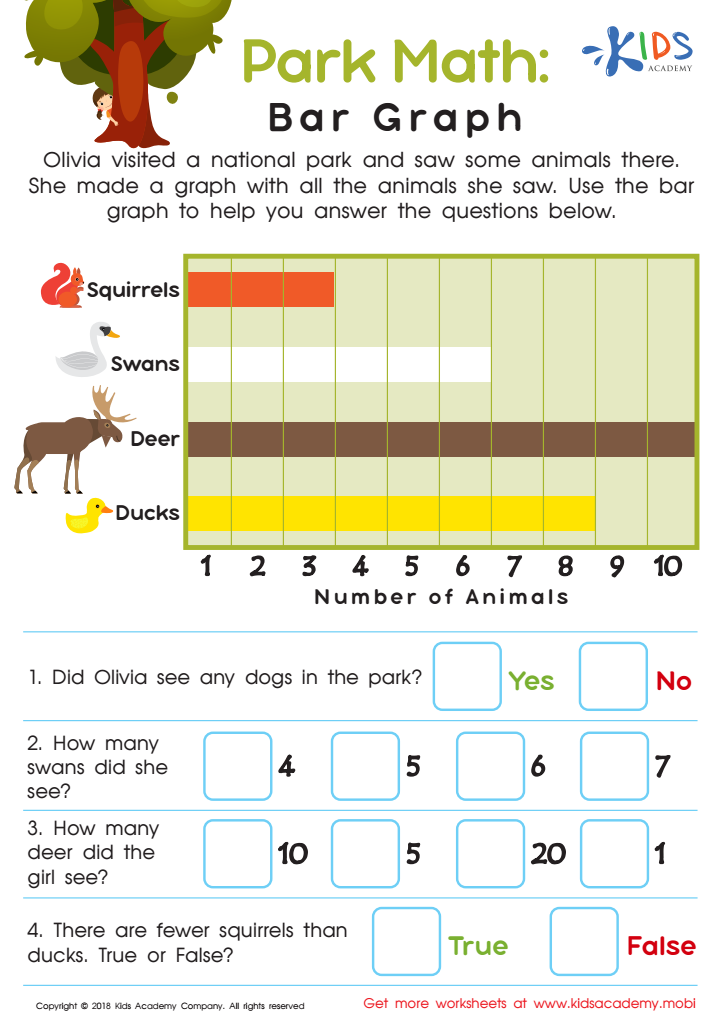

Park Math: Bar Graph Worksheet
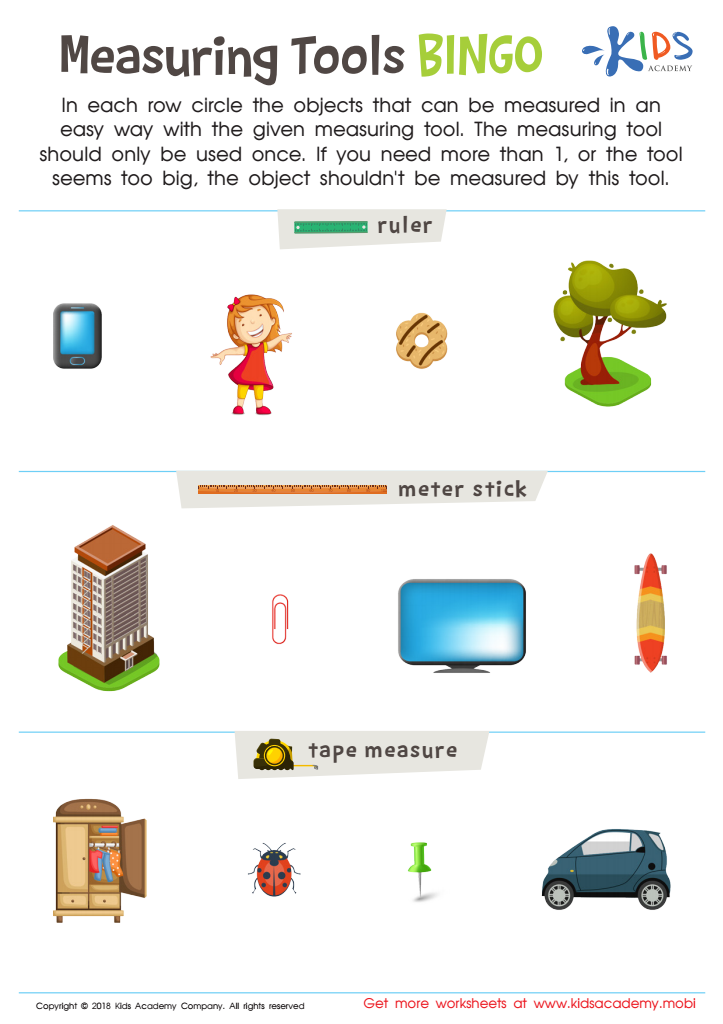

Measuring Tools Bingo Worksheet
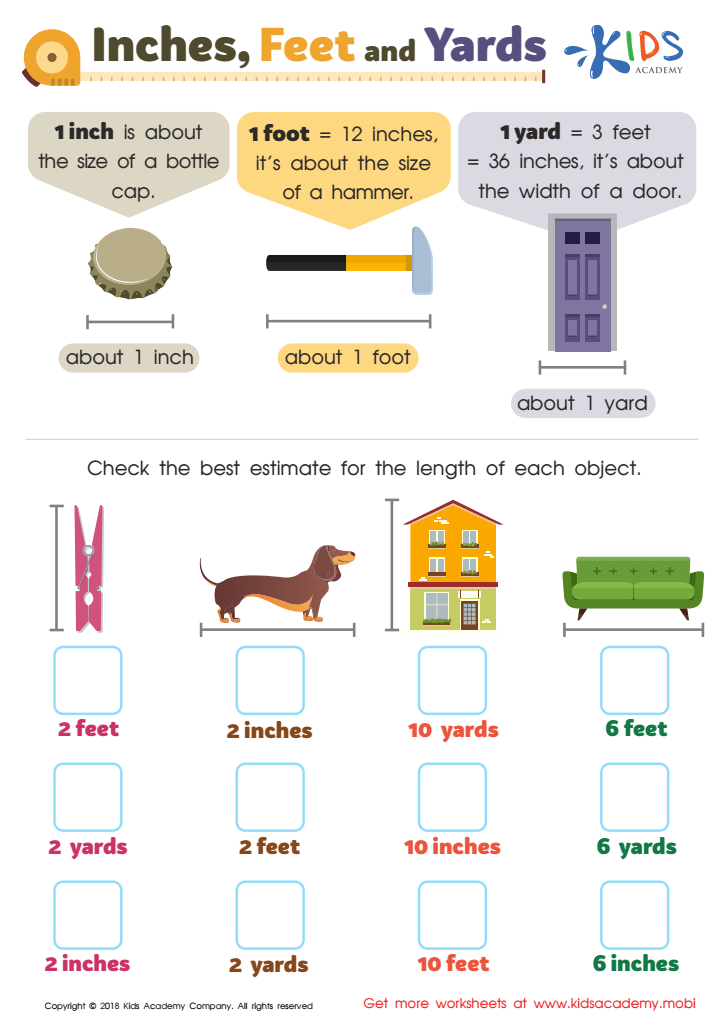

Inches, Feet and Yards Worksheet
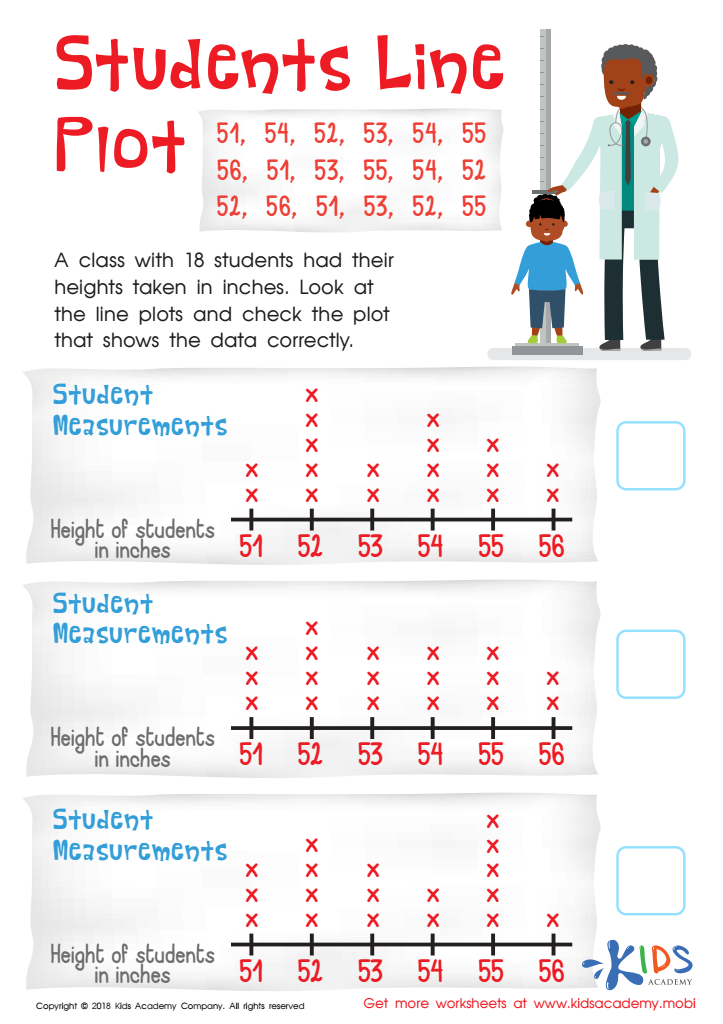

Students Line Plot Worksheet
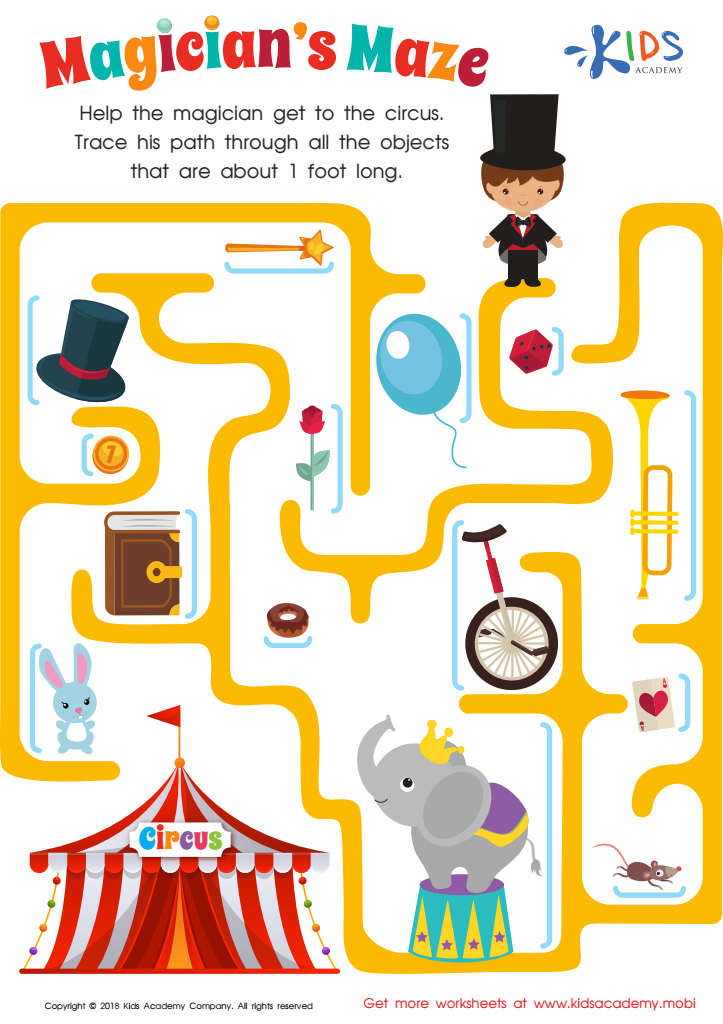

Estimating Length: Magician's Maze Worksheet
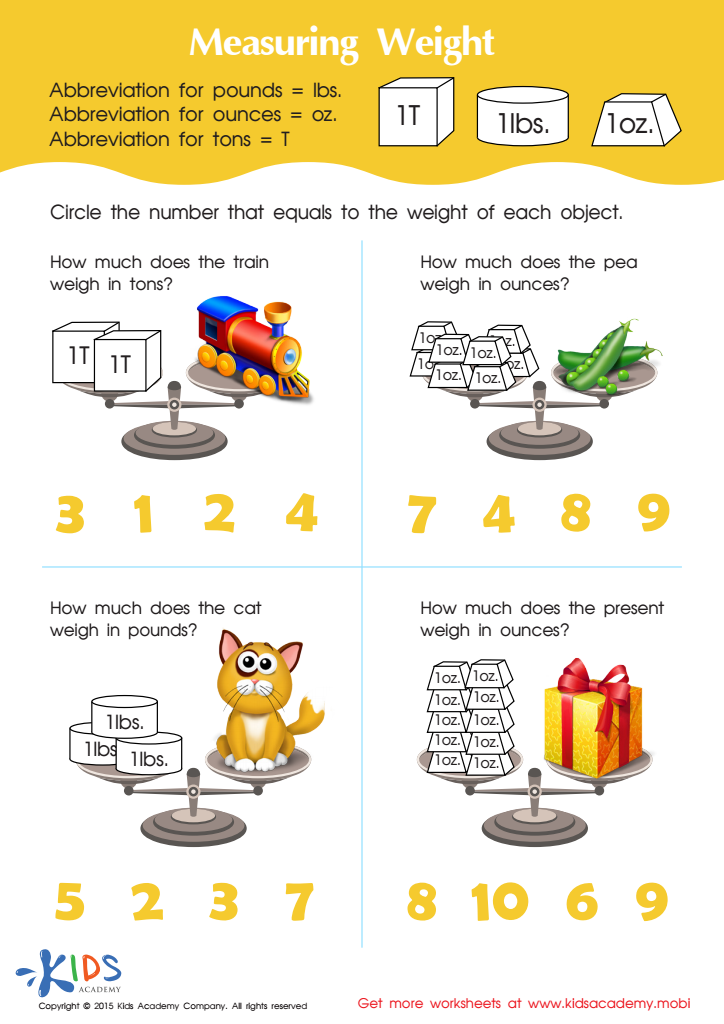

Measuring Weight in Ounces, Pounds and Tons Worksheet
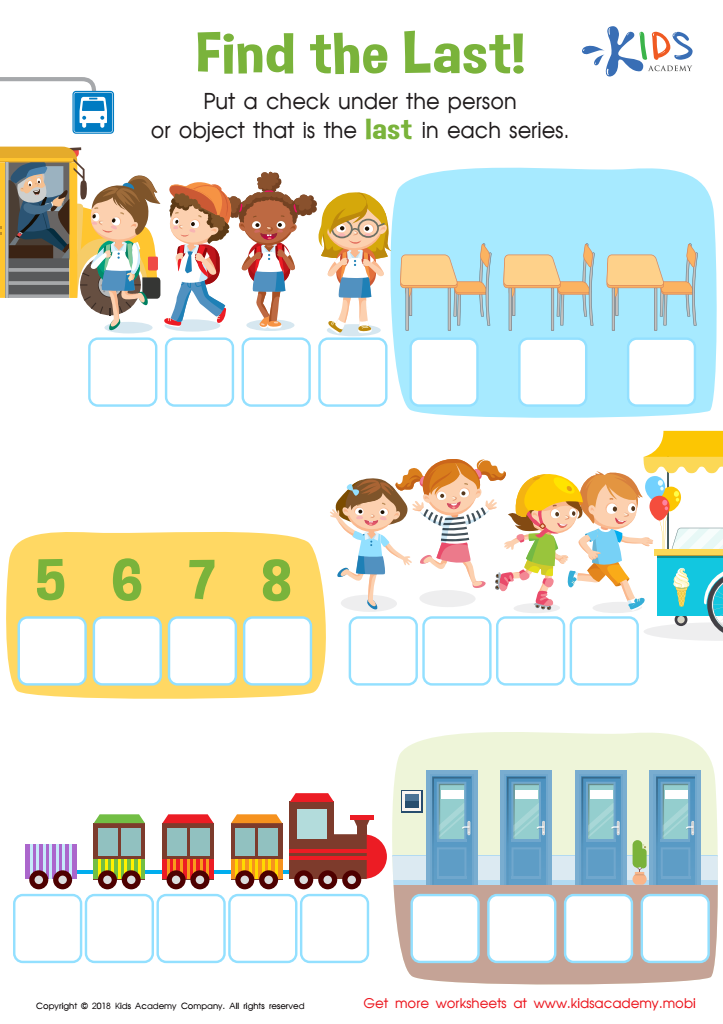

Find the Last! Worksheet
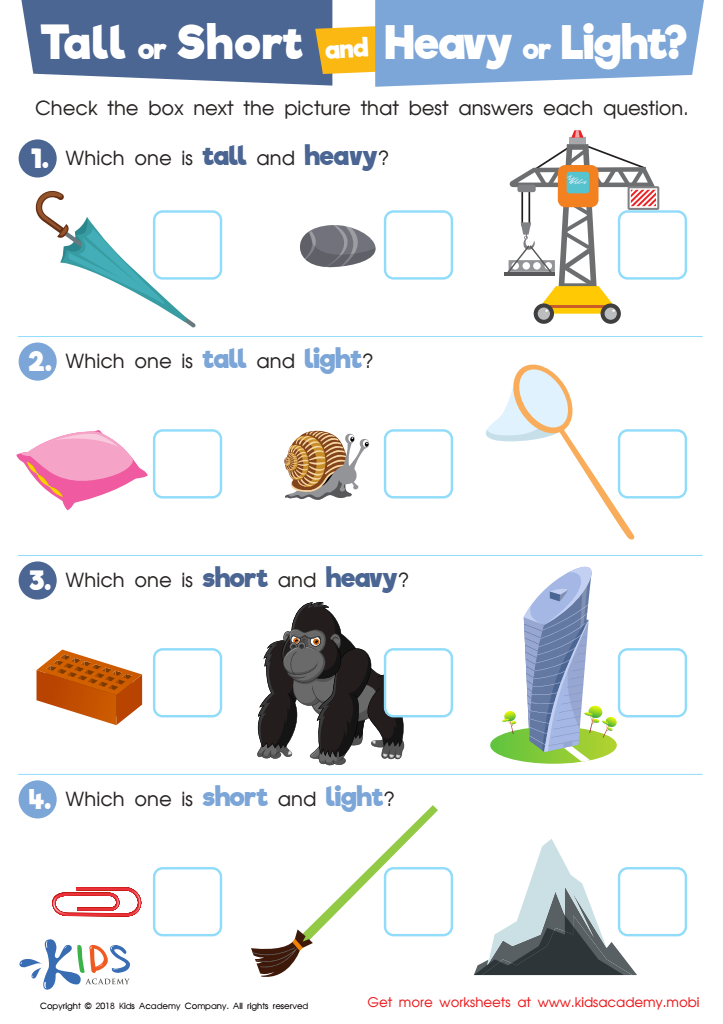

Tall or Short and Heavy or Light? Worksheet
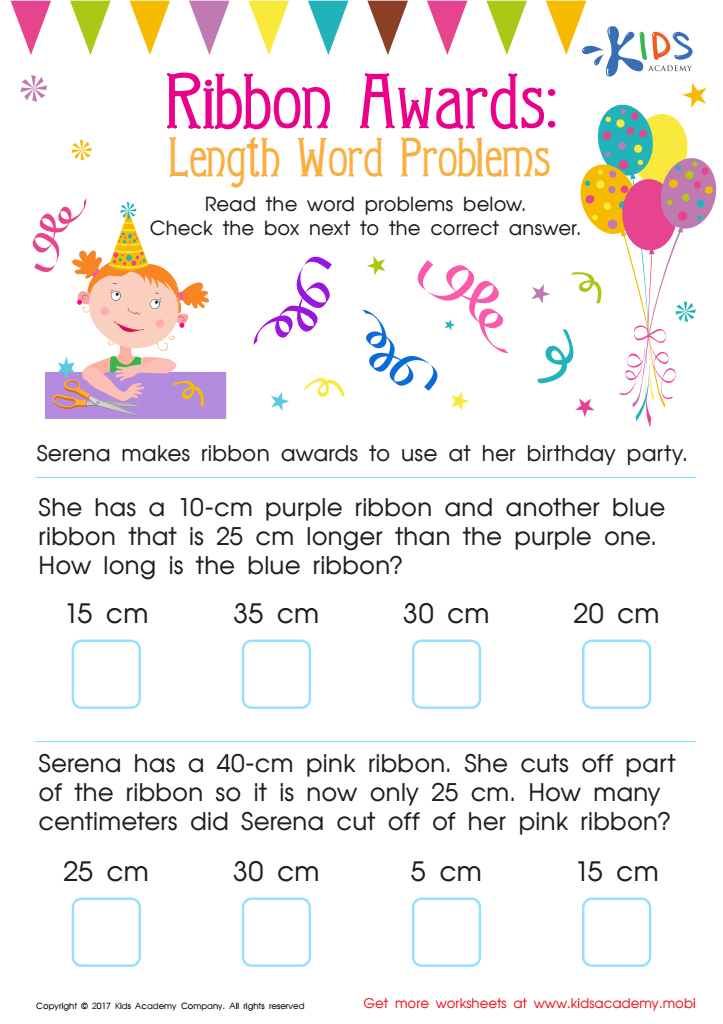

Length Word Problems Worksheet
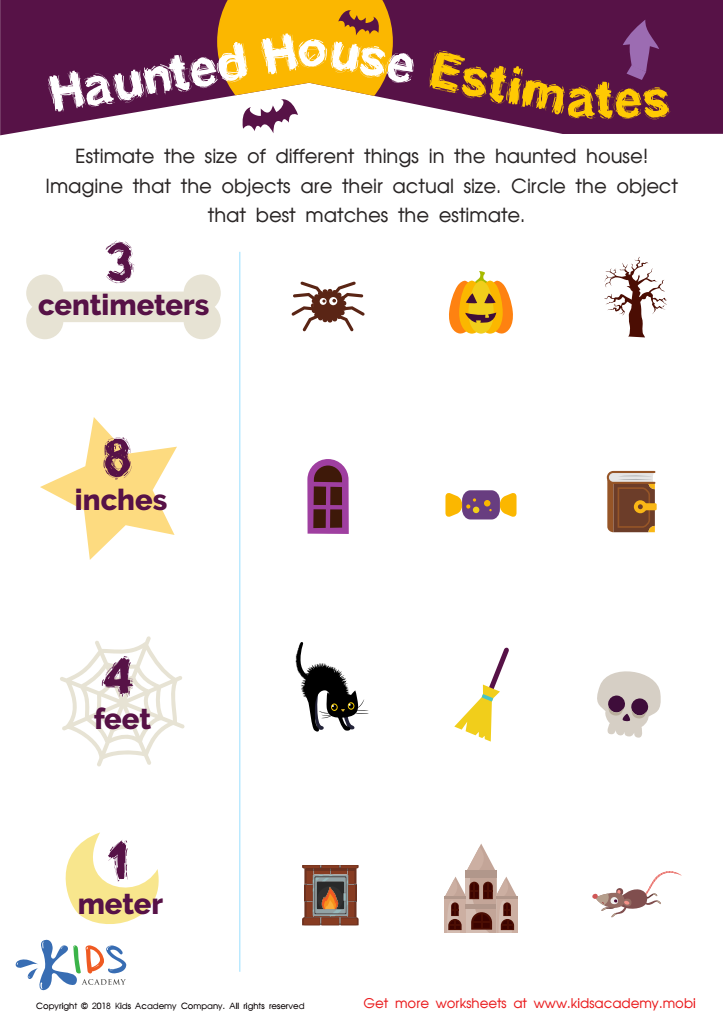

Haunted House Estimates Worksheet
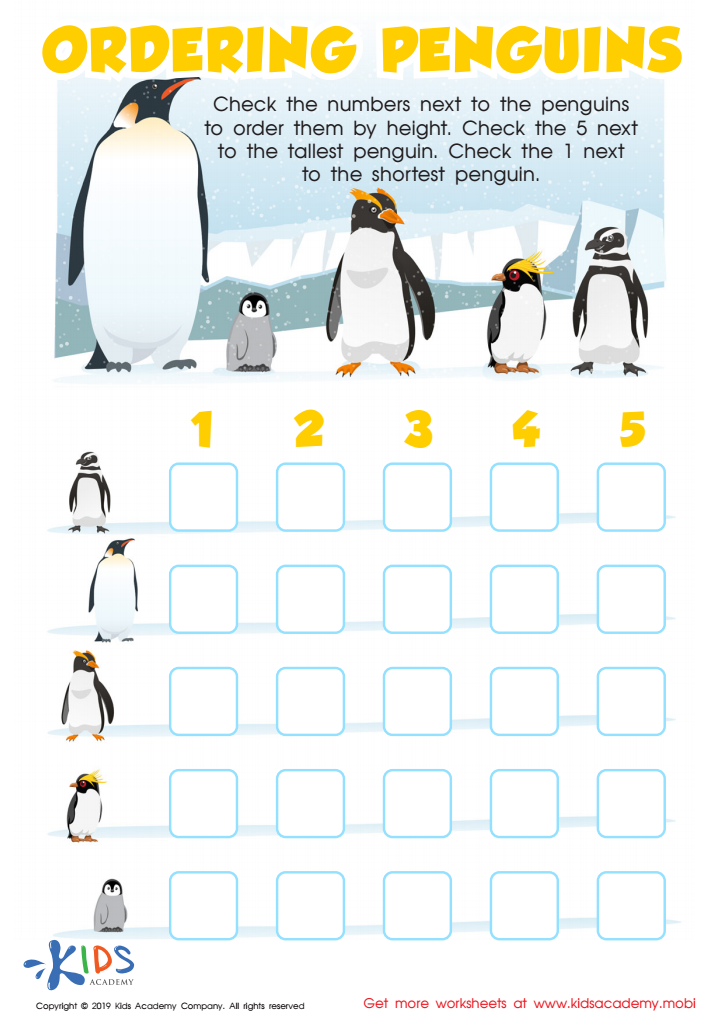

Ordering Penguins Worksheet
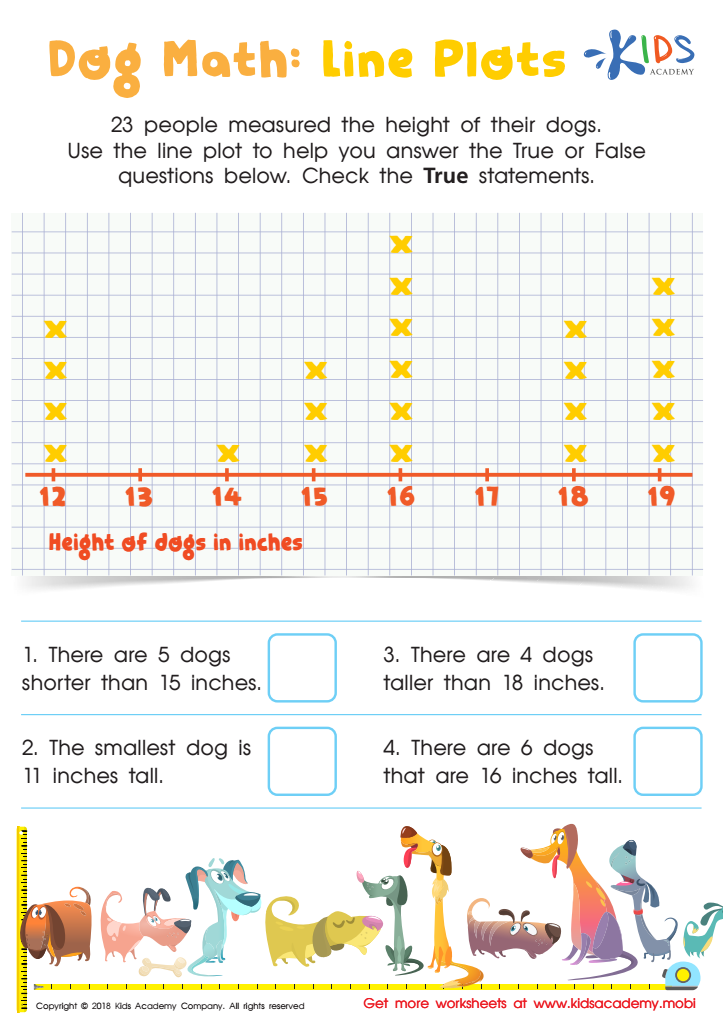

Dog Math: Line Plots Worksheet
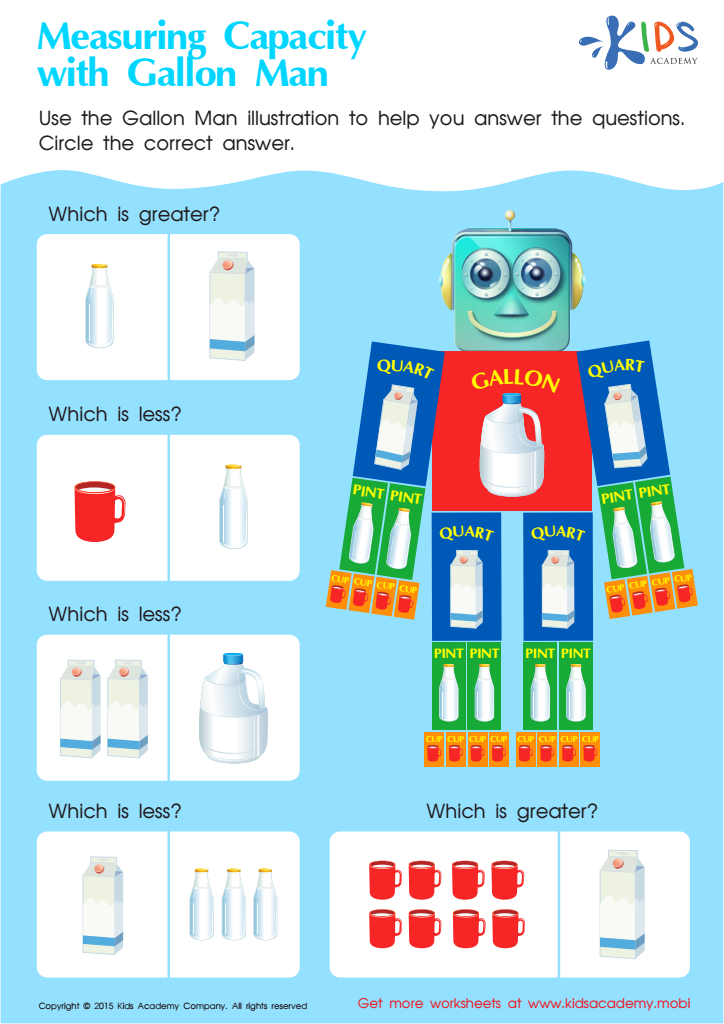

Measurement: Measuring Capacity with Gallon Man Worksheet
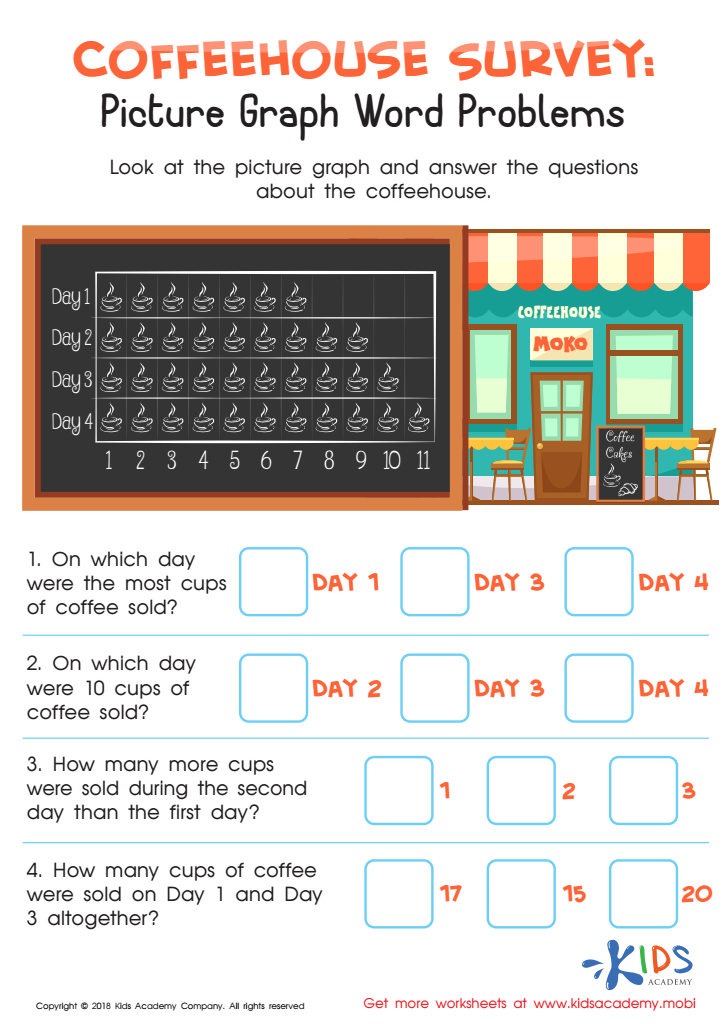

Coffeehouse Survey: Picture Graph Word Problems Worksheet
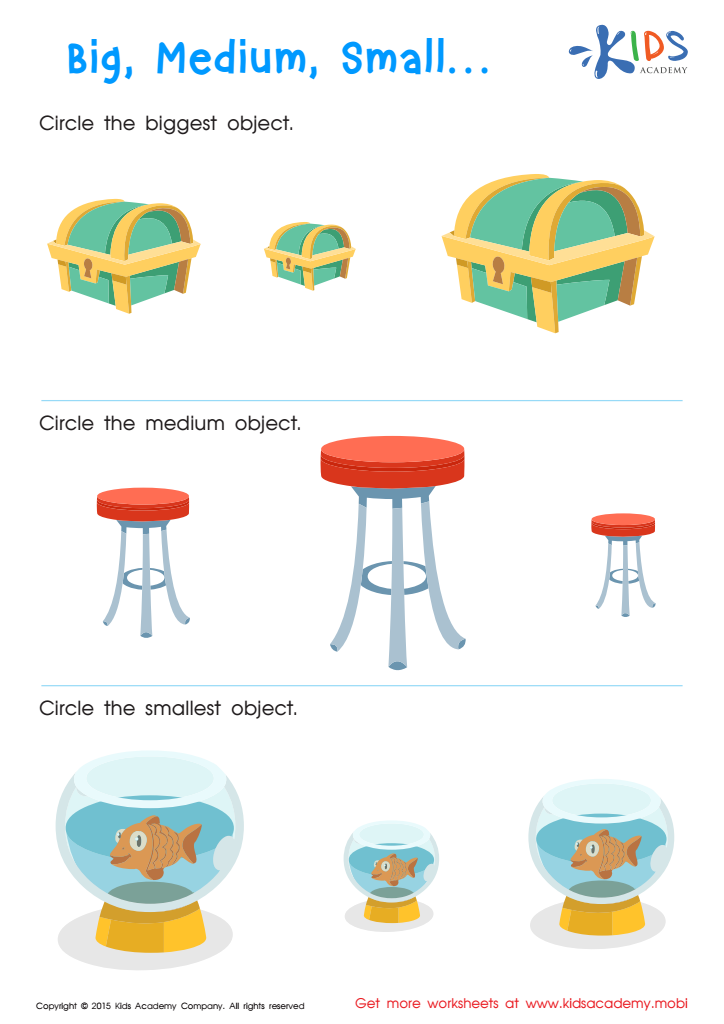

Big Medium Small Worksheet
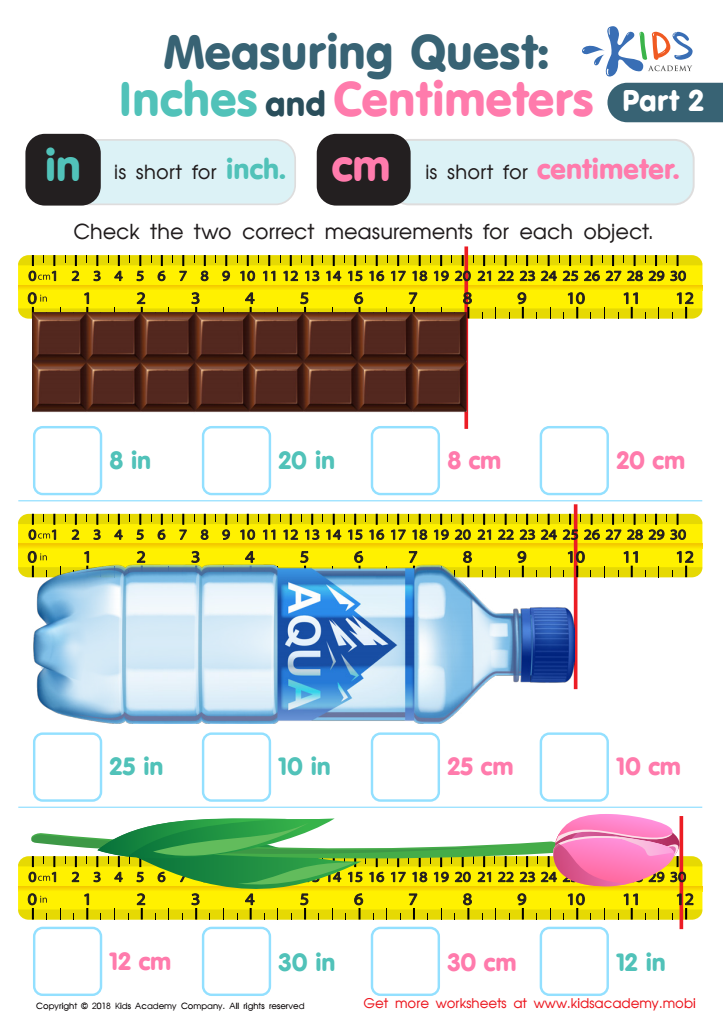

Measuring Quest: Inches and Centimeters - Part 2 Worksheet
Measurement is a fundamental concept that young children between the ages of 6-8 should grasp as it forms the basis for a wide variety of essential skills in both academic and real-world contexts. First and foremost, understanding measurement helps improve their mathematical knowledge by introducing them to concepts such as length, weight, volume, and time. These concepts are not only fundamental in their own right but also serve as building blocks for more sophisticated math and science topics they will encounter later in their education.
Moreover, measurement skills are pivotal in developing problem-solving and critical thinking abilities. For instance, when children measure objects and compare sizes or quantities, they learn to make estimations, judgments, and conclusions based on empirical data. This hands-on approach enhances their analytical skills and frames their understanding of the world around them.
From a practical standpoint, measurement is ingrained in everyday life. Tasks such as cooking, playing sports, or even organizing their day require basic measurement knowledge. Children who learn these skills early can more easily navigate everyday tasks with confidence and accuracy.
Therefore, educators and parents should prioritize teaching measurement to young children, as it lays a solid foundation for academic achievement and provides lifelong tools essential for everyday living.
 Assign to My Students
Assign to My Students





















